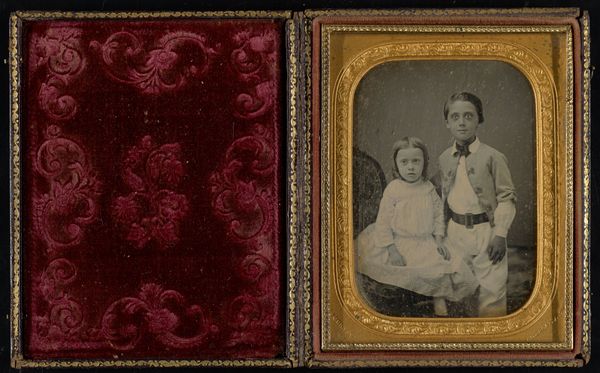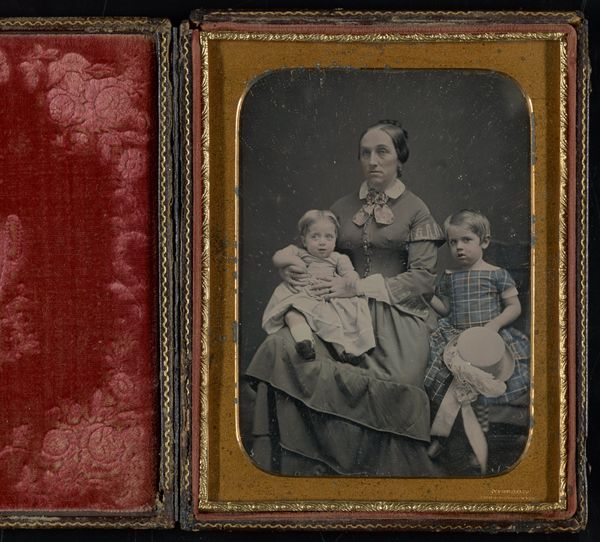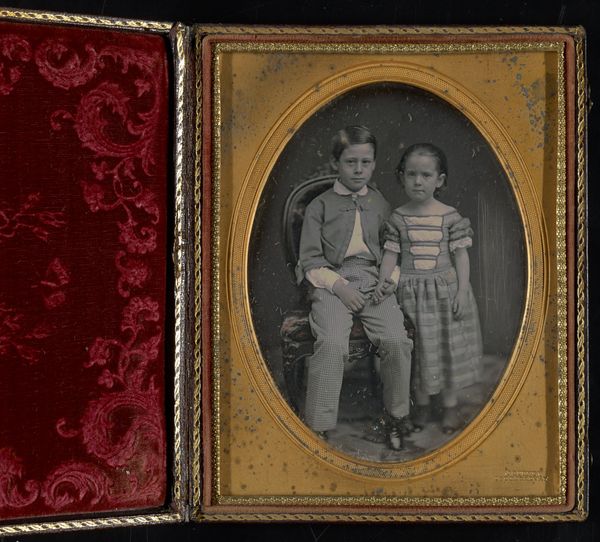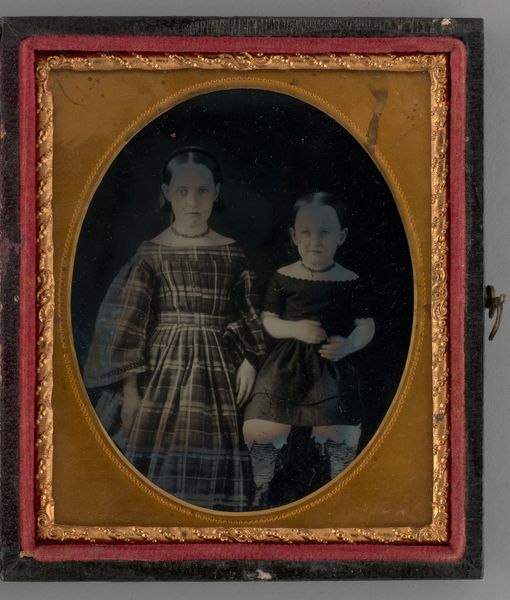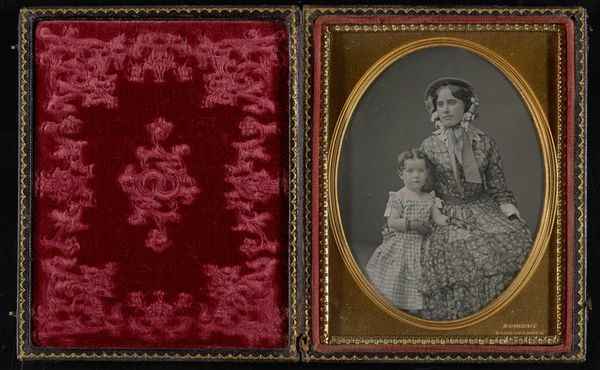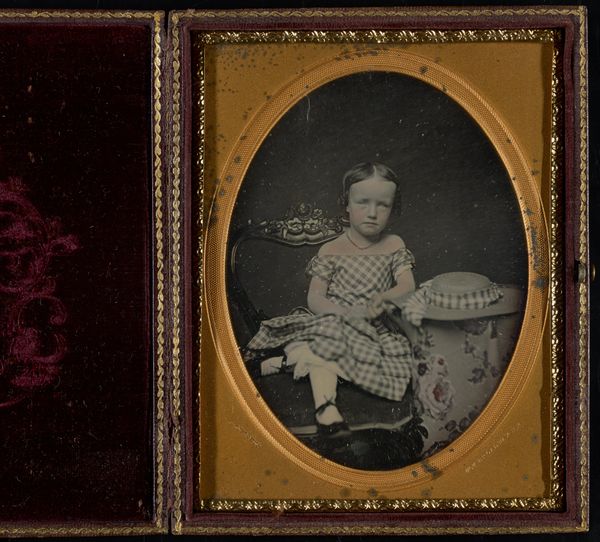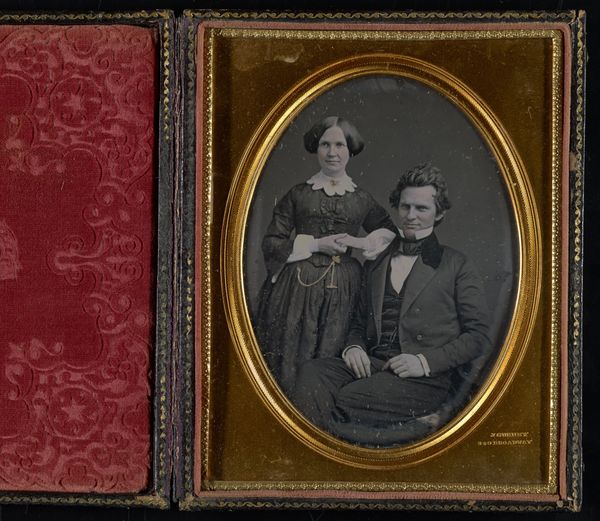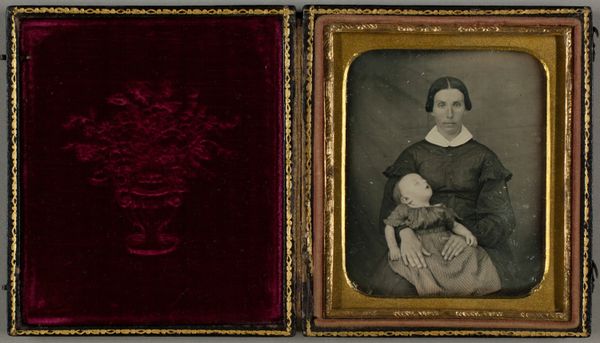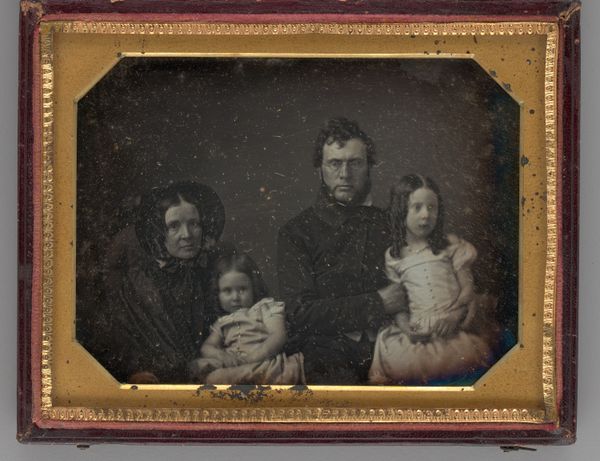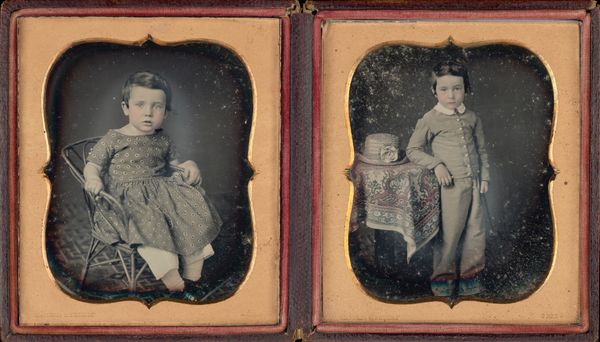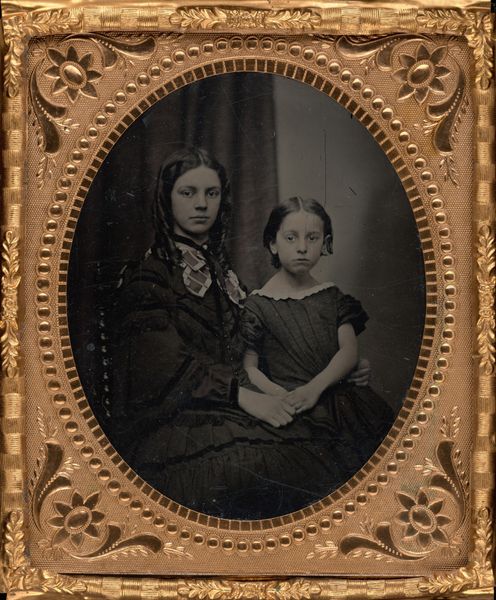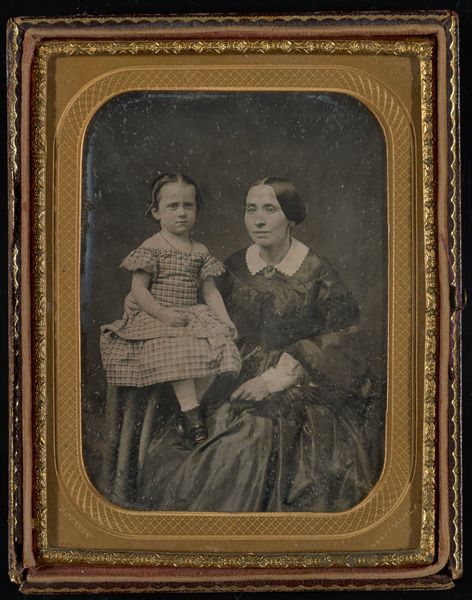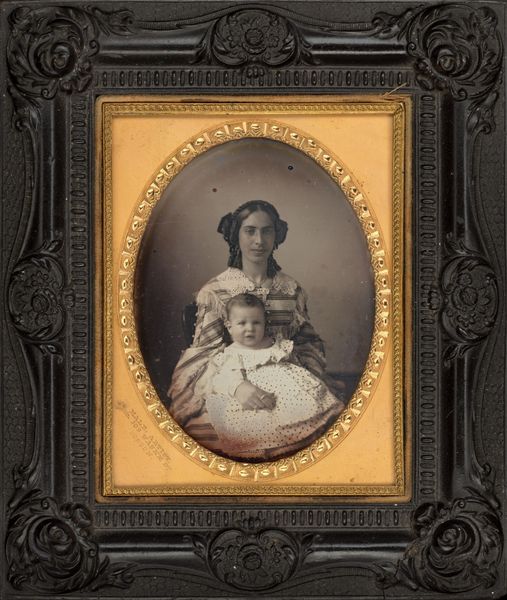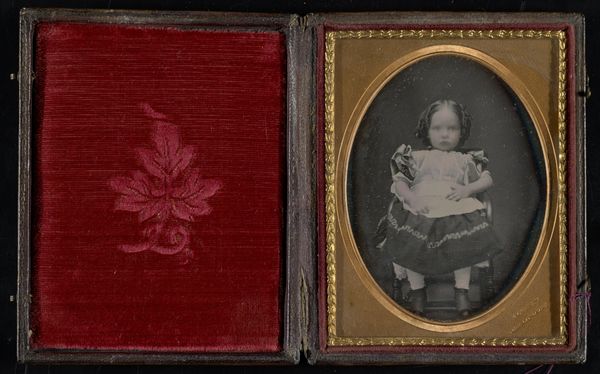![Untitled [full-length portrait of a mother and two children] by Jeremiah Gurney](/_next/image?url=https%3A%2F%2Fd2w8kbdekdi1gv.cloudfront.net%2FeyJidWNrZXQiOiAiYXJ0ZXJhLWltYWdlcy1idWNrZXQiLCAia2V5IjogImFydHdvcmtzL2NiMTA3Njg5LWFhYWYtNDBmYS1iOGVlLTQ1NjhiMGRlZjJiNy9jYjEwNzY4OS1hYWFmLTQwZmEtYjhlZS00NTY4YjBkZWYyYjdfZnVsbC5qcGciLCAiZWRpdHMiOiB7InJlc2l6ZSI6IHsid2lkdGgiOiAxOTIwLCAiaGVpZ2h0IjogMTkyMCwgImZpdCI6ICJpbnNpZGUifX19&w=3840&q=75)
Untitled [full-length portrait of a mother and two children] 1853
0:00
0:00
daguerreotype, photography
#
portrait
#
muted colour palette
#
daguerreotype
#
photography
#
historical fashion
#
dark colour palette
#
united-states
#
neutral brown palette
#
genre-painting
#
brown colour palette
#
realism
Dimensions: 5 1/2 x 4 1/4 in. (13.97 x 10.8 cm) (image)5 15/16 x 4 3/4 x 3/4 in. (15.08 x 12.07 x 1.91 cm) (mount)
Copyright: Public Domain
This portrait of a mother and two children was made by Jeremiah Gurney, one of New York’s leading photographers. It’s a daguerreotype, an early photographic process that yields a direct positive image on a polished silver-plated copper sheet. The reflective surface of the daguerreotype gives the image a mirror-like quality. Look closely, and you will see how Gurney has captured the textures of the fabrics, from the mother’s dress to the children’s patterned clothes. Photography democratized portraiture, and the daguerreotype was at the forefront of this shift. It was a new commodity, and professional photographers like Gurney emerged, mastering the chemical and optical processes required. This was labor-intensive work, involving not only the taking of the picture, but also the preparation and development of the plates, which were often made in-house. In this light, the rise of photography can be seen as part of the larger industrial revolution, changing the nature of both artistic creation and consumer culture.
Comments
No comments
Be the first to comment and join the conversation on the ultimate creative platform.
